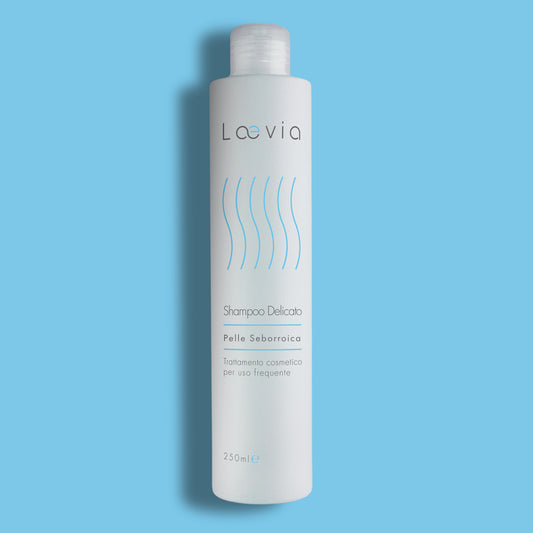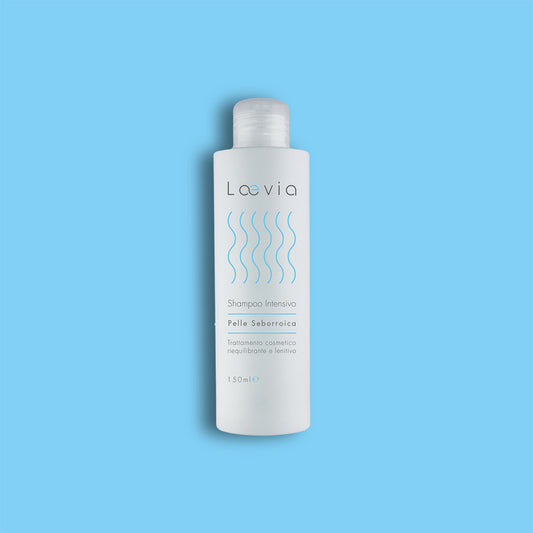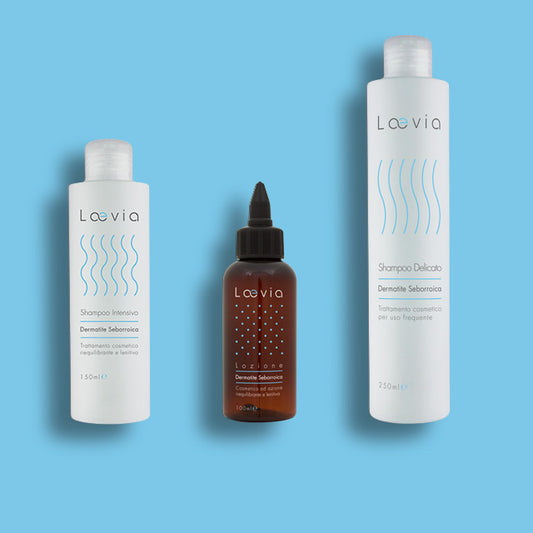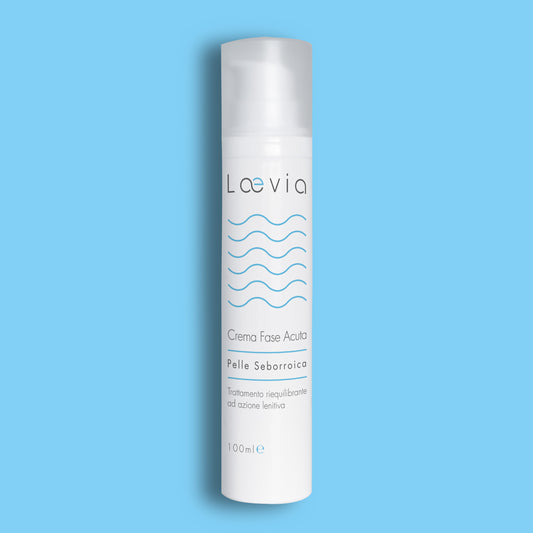Environmental, genetic and psychological factors influence the state of health of our body, contributing to the onset and worsening of some skin diseases.
A MUSHROOM, CAUSE OR EFFECT? – The surface of the skin is inhabited by many bacteria and fungi. Among these there is also Pityrosporum ovale , a microscopic fungus more commonly known as Malassezia furfur , which feeds on sebum. In the case of seborrheic dermatitis, where the production of sebum by the sebaceous glands is excessive, Malassezia furfur grows out of all proportion. However, it still remains to be understood whether this fungus is the direct cause of the disease or a consequence of it. It is certain, however, that some environmental factors such as climate or poor nutrition can favor the onset of Malassezia furfur.
A MUSHROOM, CAUSE OR EFFECT? – The surface of the skin is inhabited by many bacteria and fungi. Among these there is also Pityrosporum ovale , a microscopic fungus more commonly known as Malassezia furfur , which feeds on sebum. In the case of seborrheic dermatitis, where the production of sebum by the sebaceous glands is excessive, Malassezia furfur grows out of all proportion. However, it still remains to be understood whether this fungus is the direct cause of the disease or a consequence of it. It is certain, however, that some environmental factors such as climate or poor nutrition can favor the onset of Malassezia furfur.

EXTERNAL OR 'OUTDOOR' FACTORS OF SEBORRHEIC DERMATITIS – Climate, diet, environmental or work stress are a threat to seborrheic dermatitis. For these reasons, seborrheic dermatitis can also be defined:
THE EMOTIONAL FACTORS OF SEBORRHEIC DERMATITIS – Like other dermatological conditions, seborrheic dermatitis is also very sensitive to our moods. In fact, a possible relationship between psycho-emotional stress, sleep disorders and worsening of the symptoms of the disease would be demonstrated. Seborrheic dermatitis is:
- meteorological. The manifestations of seborrheic dermatitis follow seasonality. This skin disorder is accentuated by cold, humidity, rainy days and leaden climates, to the point that the symptoms of seborrheic dermatitis worsen and are felt more in winter and on gloomy days. On the contrary, seborrheic dermatitis stabilizes in the heat and the acute episodes and symptoms of the disease decrease. Adequate exposure to the sun is even therapeutic and the benefits increase if the advantages that sea water can provide are added to the sun.
- avitaminosa. An incorrect diet, especially if it lacks some vitamins such as B8 (biotin) or B6 (pyridoxine) can cause great damage to the skin affected by seborrheic dermatitis. In the presence of the disease, it is necessary to favor an astringent and hydrating diet, i.e. one that reduces the dilation of the capillary vessels and promotes the right hydrolipidic balance and better control of sebum production. This type of diet can be achieved by consuming lots of fruit and vegetables and taking large quantities of vitamin B8, which is involved in the regulation of fat metabolism, through food or supplements.
- easily irritable. The skin with seborrheic dermatitis can become further irritated when excessively aggressive detergents are used, which do not respect the natural pH of the skin, or excessive hygiene which destroys the hydrolipidic layer that protects it. Products that are too aggressive, in fact, degrease the skin excessively, further stimulating the production of sebum by the sebaceous glands, with deleterious effects on itching, lesions and more visible greasiness on the scalp. Therefore, the first rule in the battle against seborrheic dermatitis is the use of detergents or cosmetics specific for this skin problem and free of irritating agents.
THE EMOTIONAL FACTORS OF SEBORRHEIC DERMATITIS – Like other dermatological conditions, seborrheic dermatitis is also very sensitive to our moods. In fact, a possible relationship between psycho-emotional stress, sleep disorders and worsening of the symptoms of the disease would be demonstrated. Seborrheic dermatitis is:
- stressful. The person who suffers from seborrheic dermatitis suffers stress resulting from embarrassment and inconvenience due to the visible symptoms of the disease, who in turn is affected by prolonged stress, creating an endless vicious circle.
- tiring. States of particular tiredness (and not only psychological or stressful) and/or sleep deprivation, even for short periods, can lead to a worsening of the symptoms of seborrheic dermatitis.
- antimanic. Some mania can worsen the condition of the skin or scalp affected by seborrheic dermatitis. Examples are trichotillomania, i.e. the tendency to constantly run your hands through your hair and/or fiddle with your hair, and excessive brushing of your hair with brushes and combs. Both of these mania worsen the aesthetic appearance of the hair, making it greasy, sticky and heavy.





